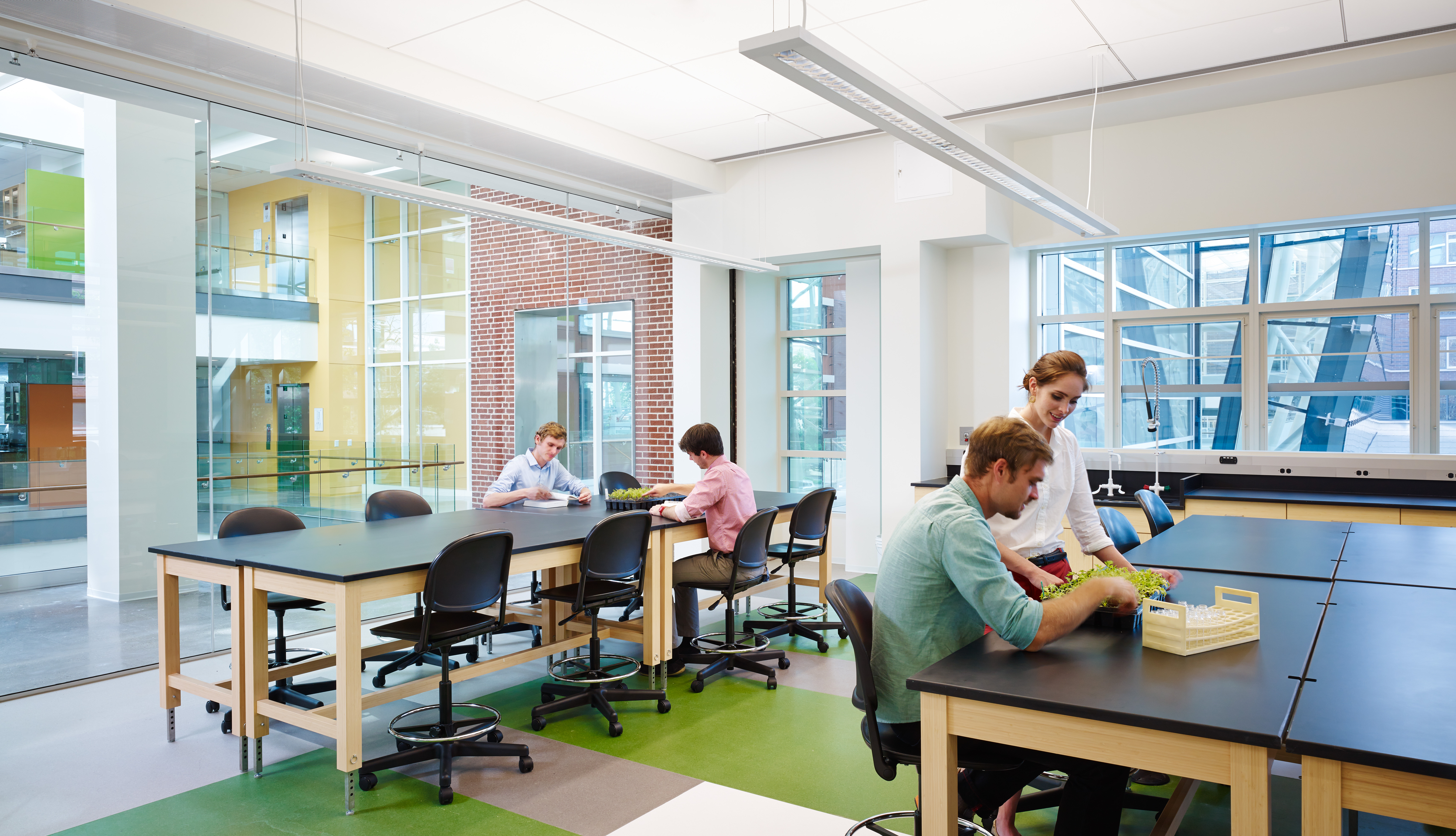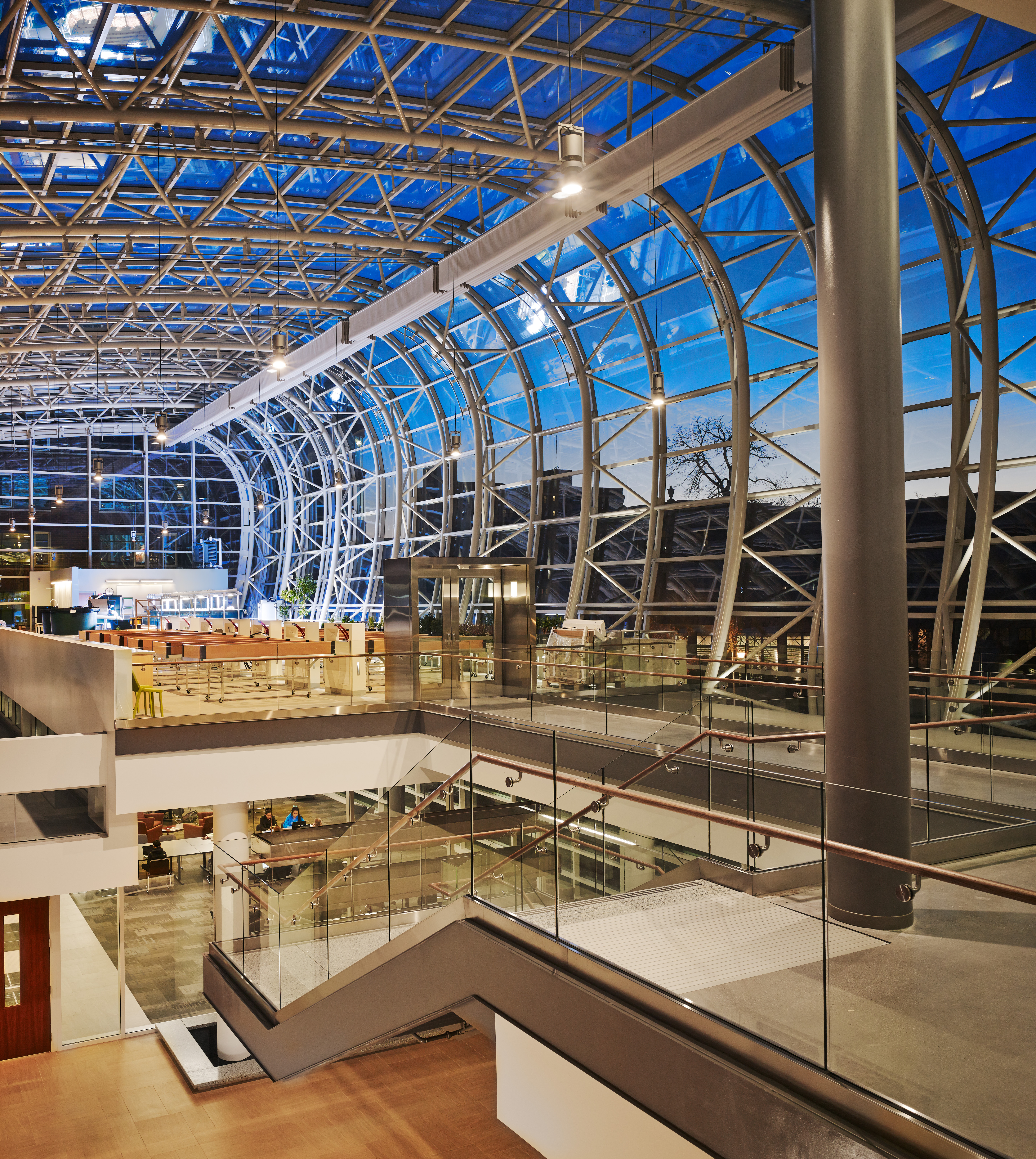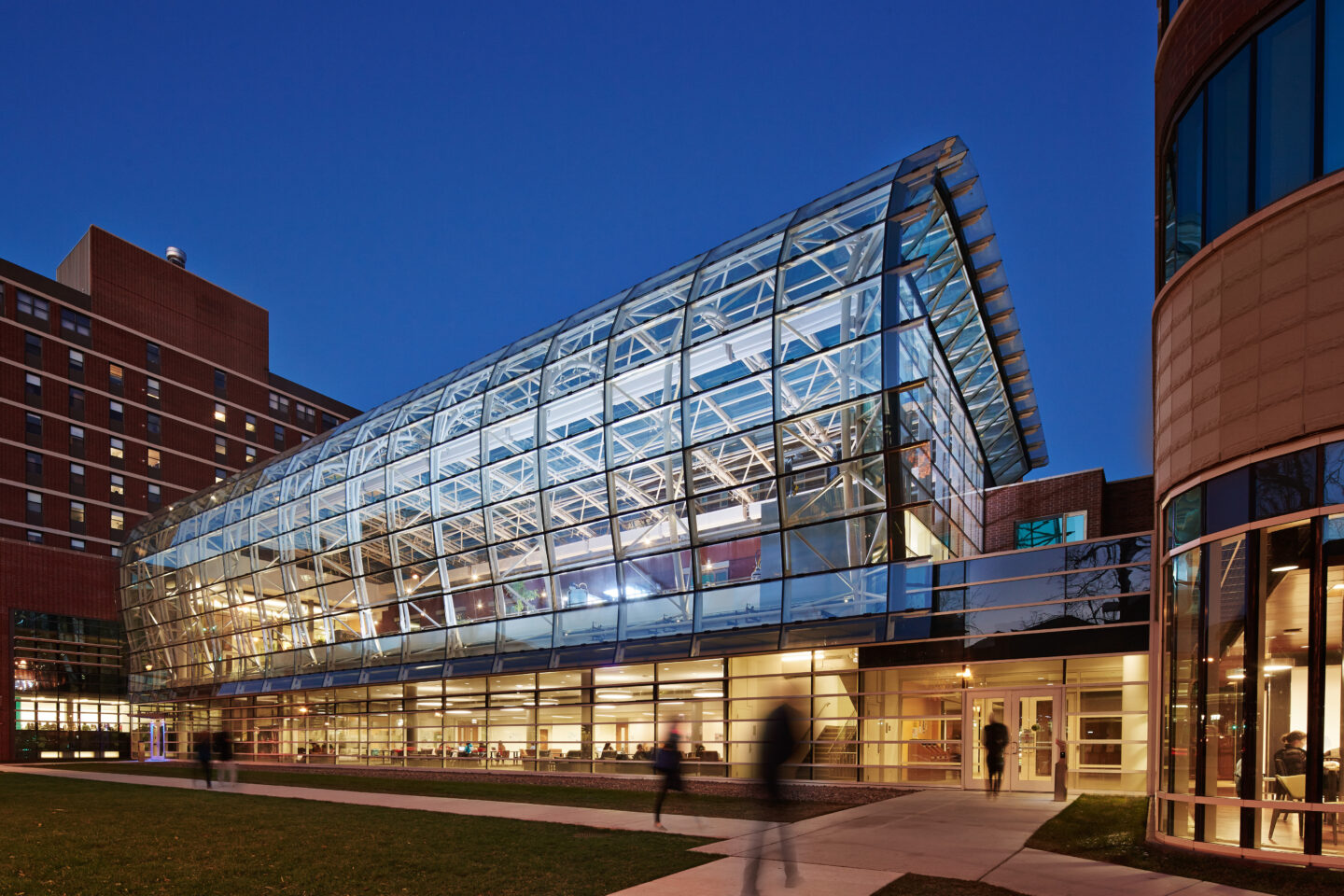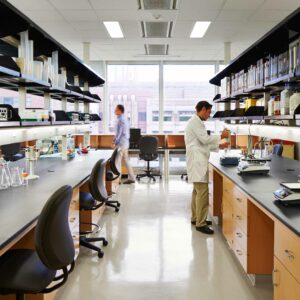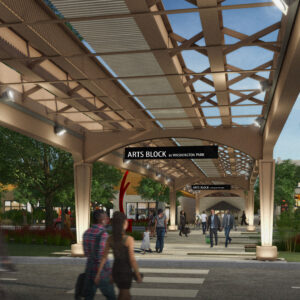School of Environmental Sustainability
The School of Environmental Sustainability is the next step in the evolution of student housing, integrating academics and targeting aggressive sustainability goals to create a unique and transformative educational experience.
IES is a multi-disciplinary, research-based facility that includes classrooms, research and teaching labs, a clean energy lab, an aquaponic farming display, and a greenhouse. The 215,000 SF complex is comprised of the academic portion of the program; San Francisco Hall, a 357-bed student residence; and a winter garden that links the buildings and provides dining, community spaces, and greenhouse. The residential portion of the program is a freshman and sophomore residence, along with a café and recreation areas, all of which are integrated into the building’s activities and environmental systems.
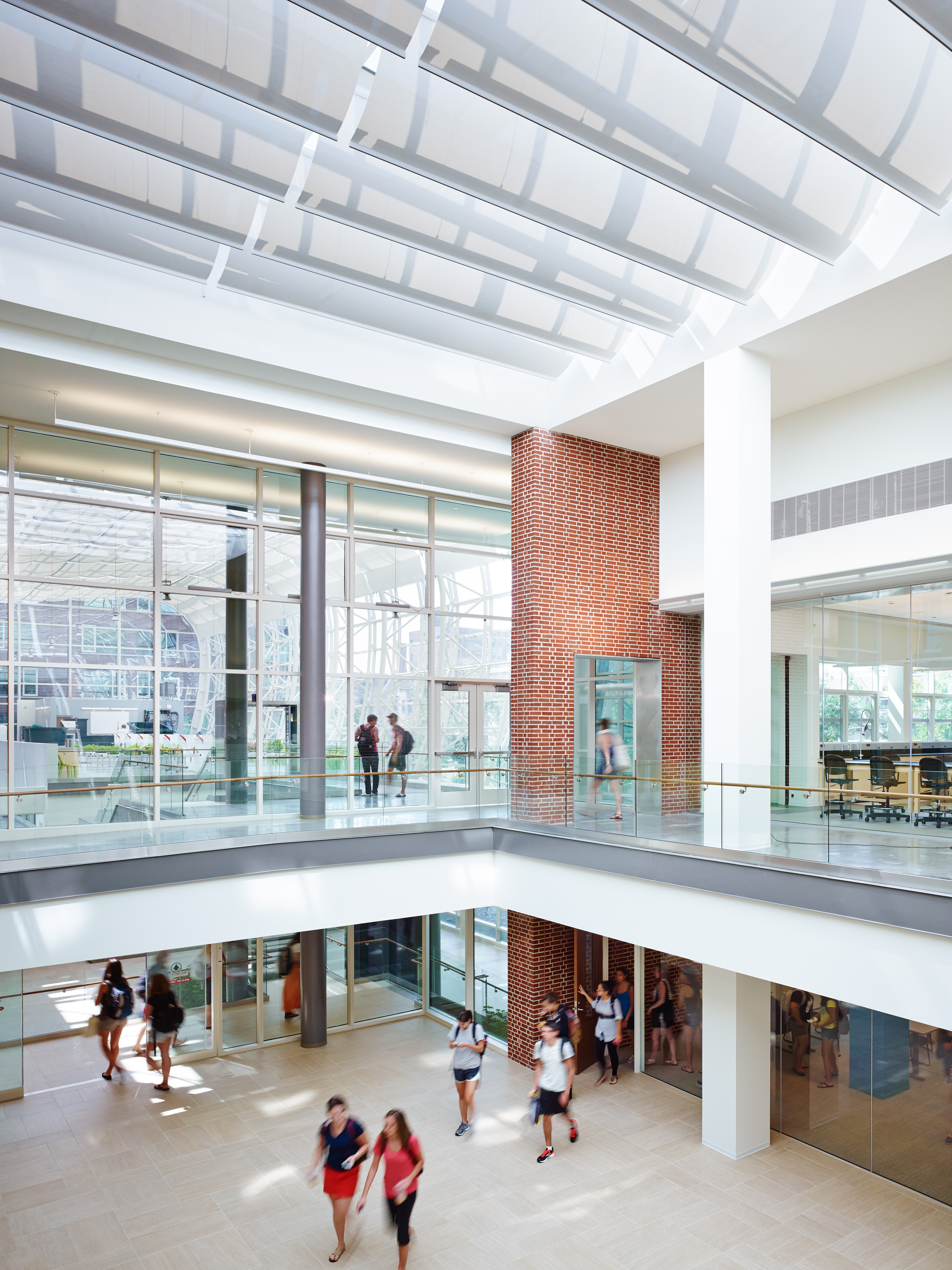
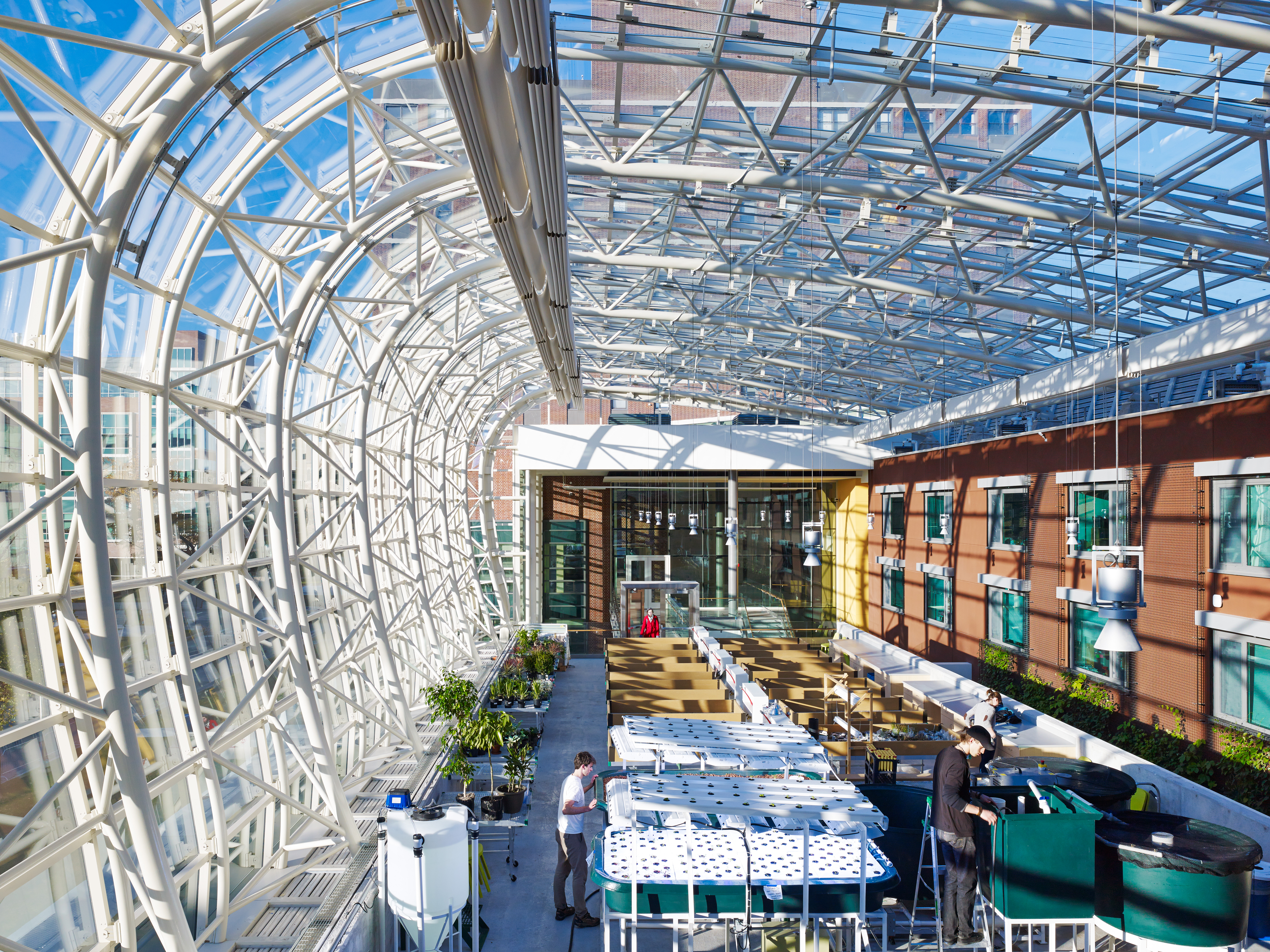
IES’ inclusive programming and planning approach fosters interdisciplinary interactions between academic disciplines, student social groups, and the local community.
IES recalls the Jeffersonian academical model of integrated living and learning by combining student residential living spaces with experiential learning facilities. Traditional classrooms and student housing are linked with an innovative passive greenhouse learning space that engages students to live sustainably, showcases urban farming, and harvests thermal energy from Chicago’s largest integrated hybrid geothermal building system. The design integrates these different program elements and results in a LEED Gold certified, Net Zero Ready community. Sustainable building strategies include natural ventilation, geothermal heating and cooling, rain water collection, grey water systems, green roofs and living walls.
